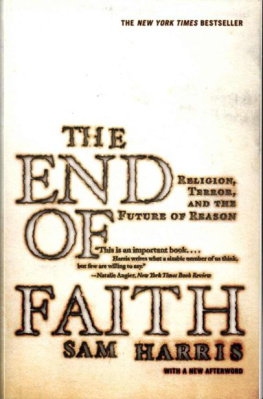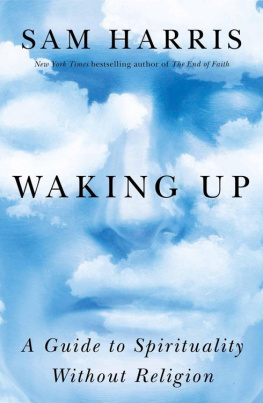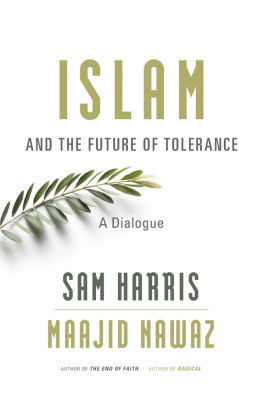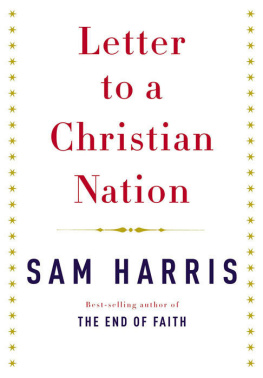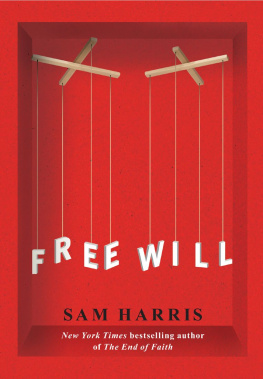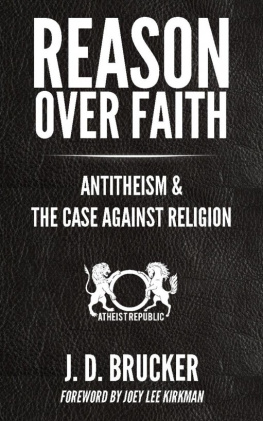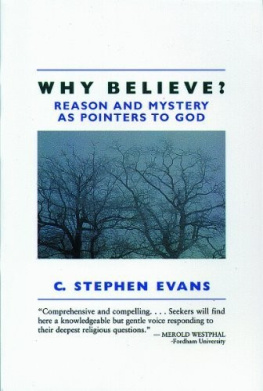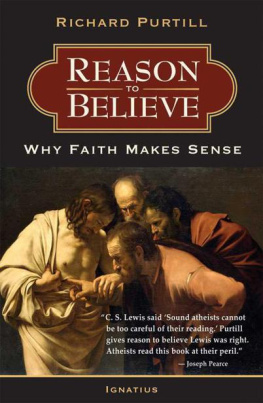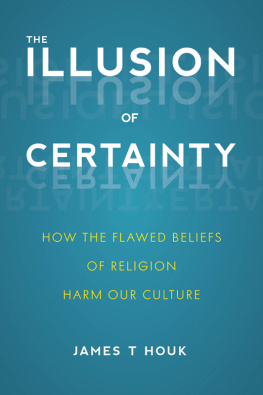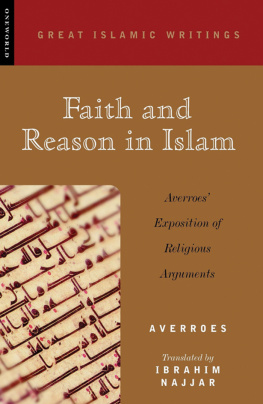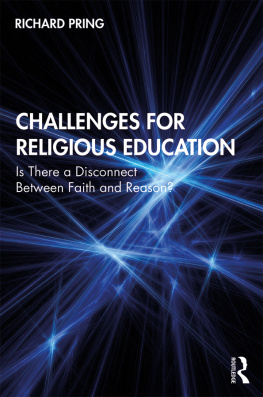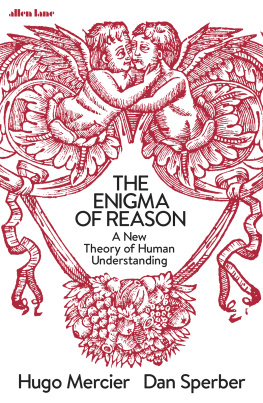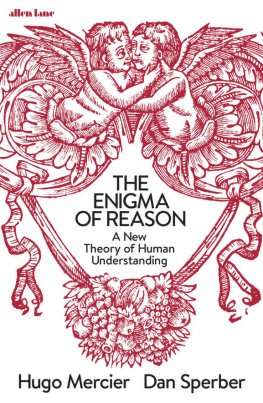
THE END OF FAITH
Religion, Terror, and the Future of Reason
SAM HARRIS

W W NORTON & COMPANY
NEW YORK LONDON
Copyright 2005, 2004 by Sam Harris
All rights reserved
Printed in the United States of America
First published as a Norton paperback 2005
For information about permission to reproduce selections from this book, write to Permissions, W. W. Norton & Company, Inc., 500 Fifth Avenue, New York, NY 10110
Manufacturing by The Courier Companies, Inc.
Book design by Margaret M. Wagner
Production manager: Amanda Morrison
Library of Congress Cataloging-in-Publication Data
Harris, Sam, date.
The end of faith : religion, terror, and the future of reason / Sam Harris.1st ed.
p. cm.
Includes bibliographical references and index.
ISBN 0-393-03515-8 (hardcover)
ISBN 0-393-32765-5 (paperback)
ISBN 978-0-393-32765-6 (paperback)
1. ReligionControversial literature. 2. TerrorismReligious aspects.3. Psychology, Religious. 4. Secular humanism. I. Title.
BL2775.3.H37 2004
200dc22
2004007874
W. W. Norton & Company, Inc., 500 Fifth Avenue, New York, N.Y. 10110
www.wwnorton.com
W. W. Norton & Company Ltd., Castle House, 75/76 Wells Street, London W1T 3QT
1 2 3 4 5 6 7 8 9 0
For my mother
1
Reason in Exile
THE young man boards the bus as it leaves the terminal. He wears an overcoat. Beneath his overcoat, he is wearing a bomb. His pockets are filled with nails, ball bearings, and rat poison.
The bus is crowded and headed for the heart of the city. The young man takes his seat beside a middle-aged couple. He will wait for the bus to reach its next stop. The couple at his side appears to be shopping for a new refrigerator. The woman has decided on a model, but her husband worries that it will be too expensive. He indicates another one in a brochure that lies open on her lap. The next stop comes into view. The bus doors swing. The woman observes that the model her husband has selected will not fit in the space underneath their cabinets. New passengers have taken the last remaining seats and begun gathering in the aisle. The bus is now full. The young man smiles. With the press of a button he destroys himself, the couple at his side, and twenty others on the bus. The nails, ball bearings, and rat poison ensure further casualties on the street and in the surrounding cars. All has gone according to plan.
The young mans parents soon learn of his fate. Although saddened to have lost a son, they feel tremendous pride at his accomplishment. They know that he has gone to heaven and prepared the way for them to follow. He has also sent his victims to hell for eternity. It is a double victory. The neighbors find the event a great cause for celebration and honor the young mans parents by giving them gifts of food and money.
These are the facts. This is all we know for certain about the young man. Is there anything else that we can infer about him on the basis of his behavior? Was he popular in school? Was he rich or was he poor? Was he of low or high intelligence? His actions leave no clue at all. Did he have a college education? Did he have a bright future as a mechanical engineer? His behavior is simply mute on questions of this sort, and hundreds like them.
A BELIEF is a lever that, once pulled, moves almost everything else in a persons life. Are you a scientist? A liberal? A racist? These are merely species of belief in action. Your beliefs define your vision of the world; they dictate your behavior; they determine your emotional responses to other human beings. If you doubt this, consider how your experience would suddenly change if you came to believe one of the following propositions:
- You have only two weeks to live.
- Youve just won a lottery prize of one hundred million dollars.
- Aliens have implanted a receiver in your skull and are manipulating your thoughts.
These are mere wordsuntil you believe them. Once believed, they become part of the very apparatus of your mind, determining your desires, fears, expectations, and subsequent behavior.
There seems, however, to be a problem with some of our most cherished beliefs about the world: they are leading us, inexorably, to kill one another. A glance at history, or at the pages of any newspaper, reveals that ideas which divide one group of human beings from another, only to unite them in slaughter, generally have their roots in religion. It seems that if our species ever eradicates itself through war, it will not be because it was written in the stars but because it was written in our books; it is what we do with words like God and paradise and sin in the present that will determine our future.
Our situation is this: most of the people in this world believe that the Creator of the universe has written a book. We have the misfortune of having many such books on hand, each making an exclusive claim as to its infallibility. People tend to organize themselves into factions according to which of these incompatible claims they acceptrather than on the basis of language, skin color, location of birth, or any other criterion of tribalism. Each of these texts urges its readers to adopt a variety of beliefs and practices, some of which are benign, many of which are not. All are in perverse agreement on one point of fundamental importance, however: respect for other faiths, or for the views of unbelievers, is not an attitude that God endorses. While all faiths have been touched, here and there, by the spirit of ecumenicalism, the central tenet of every religious tradition is that all others are mere repositories of error or, at best, dangerously incomplete. Intolerance is thus intrinsic to every creed. Once a person believesreally believesthat certain ideas can lead to eternal happiness, or to its antithesis, he cannot tolerate the possibility that the people he loves might be led astray by the blandishments of unbelievers. Certainty about the next life is simply incompatible with tolerance in this one.
Observations of this sort pose an immediate problem for us, however, because criticizing a persons faith is currently taboo in every corner of our culture. On this subject, liberals and conservatives have reached a rare consensus: religious beliefs are simply beyond the scope of rational discourse. Criticizing a persons ideas about God and the afterlife is thought to be impolitic in a way that criticizing his ideas about physics or history is not. And so it is that when a Muslim suicide bomber obliterates himself along with a score of innocents on a Jerusalem street, the role that faith played in his actions is invariably discounted. His motives must have been political, economic, or entirely personal. Without faith, desperate people would still do terrible things. Faith itself is always, and everywhere, exonerated.
But technology has a way of creating fresh moral imperatives. Our technical advances in the art of war have finally rendered our religious differencesand hence our religious beliefsantithetical to our survival. We can no longer ignore the fact that billions of our neighbors believe in the metaphysics of martyrdom, or in the literal truth of the book of Revelation, or any of the other fantastical notions that have lurked in the minds of the faithful for millenniabecause our neighbors are now armed with chemical, biological, and nuclear weapons. There is no doubt that these developments mark the terminal phase of our credulity. Words like God and Allah must go the way of Apollo and Baal, or they will unmake our world.
Next page
